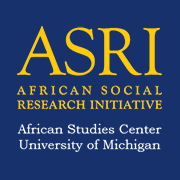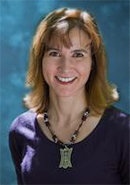The UM-sponsored African Social Research Initiative (ASRI) Conference, to take place in Accra, July 13-16, will include medical school, political science, and economics faculty, to name a few, along with counterparts from several African universities. Among those attending will be two Global REACH faculty associates, Dr. Cheryl Moyer, Assistant Professor of Learning Health Sciences and Obstetrics and Gynecology, and Dr. Sarah Rominski, Senior Research Associate. Both have done extensive maternal health work in Africa.

“It’s a great opportunity to get a bunch of really bright people together in one room to think about the big picture,” said Dr. Moyer, who, as interim ASRI Coordinator, is the among conference organizers. “Political scientists, economists, demographers, physician scientists – we all have our research interests, but it’s easy to forget that in the real world, these things are interrelated.”
The theme of this year’s conference, hosted at the University of Ghana, will be “Breaking Barriers to Africa’s Development: The Role of the Social Sciences.”
Dr. Rominski will present on her work studying the use of different contraception methods across various parts of Ghana. Dr. Moyer and colleagues will present on work that explores the complex maternal health challenges in northern Ghana. Other conference subjects include population migration trends; African politics and elections; and education and income inequality – all of which have huge implications for health and healthcare.

“For example, how does migration impact health economics? It’s an important question, but one that wouldn’t often be raised if not for events like this one,” said Dr. Moyer. “The goal is really to spark interdisciplinary research so we can work together to identify practical solutions to these complex problems.”
